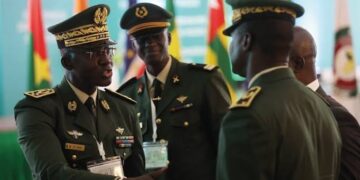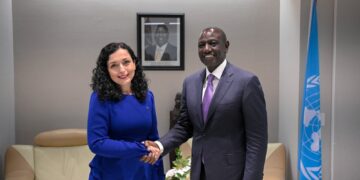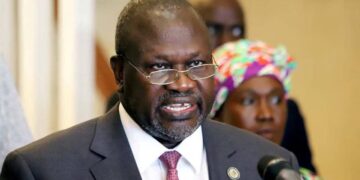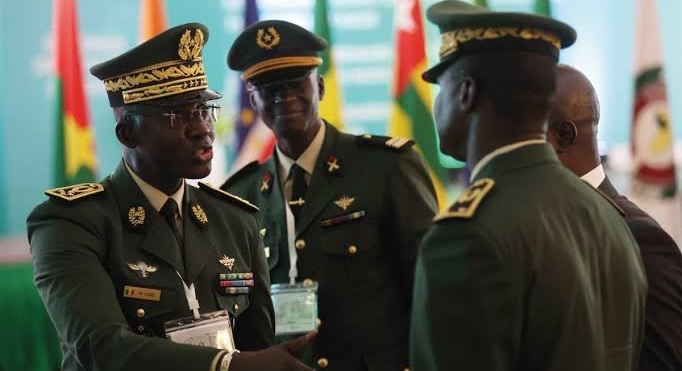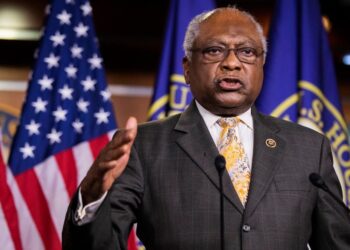By John Ikani
West African defence chiefs are proposing a bold solution to the region’s escalating security issues: a 5,000-strong “standby force.”
However, analysts warn that funding constraints and internal divisions within the bloc could hinder its effectiveness.
The $2.6 billion annual plan, unveiled during a meeting of defence officials in Abuja, Nigeria, aims to not only combat regional insecurity but also deter further military coups.
This comes after a string of takeovers has destabilized several nations.
The meeting marks the first time the Economic Community of West African States (ECOWAS) would publicly address the financing of its long-discussed standby force.
Yet, concerns linger. Experts cite potential challenges, including securing sufficient funding from member states and acquiring the cooperation of coup-led governments most afflicted by the crises.
“We face a critical juncture,” declared Omar Alieu Touray, ECOWAS Commission president, urging member states to back the force. The proposal will be presented to regional heads of state at their upcoming summit.
The recent resurgence of coups in West and Central Africa, with four nations currently under military rule, has fractured the 15-member ECOWAS and destabilized the region. Mali, Burkina Faso, and Niger, the countries hardest hit by the violence which now threatens coastal nations, are prime examples.
ECOWAS’ attempts to restore democracy in these nations have proven unsuccessful. Lifting economic sanctions, their previous tactic, backfired – the three coup-hit countries withdrew their membership, opening doors for more Russian mercenary activity in the region.
The invitation extended by Touray to officials from Mali, Burkina Faso, and Niger to participate in forming the force remains unanswered.
“Without external aid, I doubt ECOWAS can independently launch military interventions,” commented Ulf Laessing, head of the Sahel program at the Konrad Adenauer Foundation.
Analysts like Kars de Bruijne, a senior research fellow at the Clingendael Institute, believe the force’s success hinges on commitment from all member states and a clear strategy for dealing with Burkina Faso, Mali, and Niger.
“Delivering on plans has been a longstanding issue for ECOWAS,” de Bruijne concluded. Only time will tell if this ambitious proposal can overcome these hurdles and bring stability back to the region.
